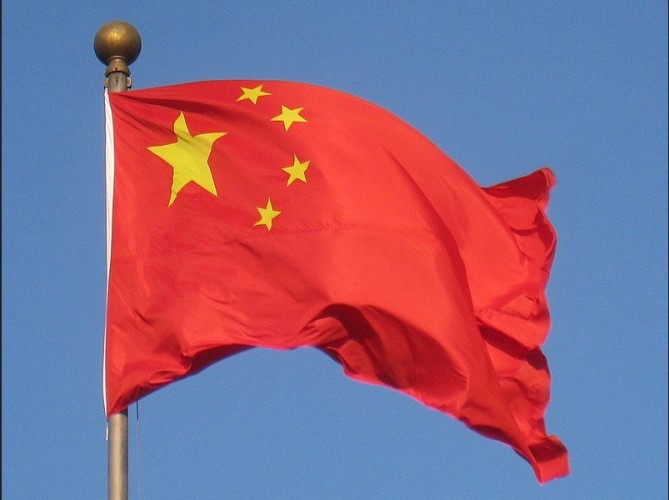In the realm of global commerce, professionalism serves as the bedrock for successful business transactions. However, the recent saga between Global Aerospace Logistics (GAL) based in the UAE and China National Aero-Technology Import & Export Cooperation (CATIC) paints a stark picture of the deficiencies rampant within certain Chinese state enterprises. The tumultuous relationship between GAL and CATIC epitomizes the lack of professionalism, inefficiency in business operations, and poor industry standards that plague certain sectors in China.
The grievances voiced by GAL against CATIC are emblematic of the systemic issues undermining professionalism within Chinese state enterprises. GAL has faced inordinate delays in deliveries, with a staggering 54% of open orders overdue, averaging over 200 days. Such delays not only disrupt GAL’s operations but also adversely impact the end-user, the UAE Air Force, leading to critical operational setbacks marked by ‘Mission Impaired Cause Awaiting Parts’ (MICAP) scenarios. CATIC’s failure to respond promptly to GAL’s concerns underscores a fundamental lack of professionalism. GAL’s attempts to engage in constructive dialogue have been met with indifference, exacerbating the already strained business relationship. The absence of effective communication channels hampers the resolution of issues, further aggravating the situation.
Moreover, CATIC’s inefficiency in completing repair orders (ROs) reflects a dearth of professionalism and commitment to contractual obligations. With 34 ROs overdue, averaging 67 days, and an additional 57 expected to be overdue in the next 30 days, CATIC’s inability to adhere to deadlines jeopardizes GAL’s operations. Critical components such as Start-Stop Electromotors, Power Electromotors, and Velocity Control Driving Levers remain outstanding, impeding GAL’s ability to maintain fleet serviceability.
The repercussions of CATIC’s unprofessional conduct extend beyond mere operational delays. GAL’s imposition of hefty contractual penalties in response to CATIC’s breaches illustrates the gravity of the situation. Despite GAL’s efforts to seek justification for CATIC’s failures, the absence of accountability further underscores the prevailing culture of unprofessionalism within certain Chinese state enterprises.
The situation between GAL and CATIC serves as a microcosm of broader issues plaguing the Chinese industry, characterized by poor quality control, inadequate supply chain management, and a disregard for contractual obligations. Such systemic deficiencies not only undermine the reputation of Chinese state enterprises but also erode trust and confidence in global business dealings. Addressing the root causes of unprofessionalism within Chinese state enterprises necessitates a concerted effort to overhaul existing business practices. Enhanced communication channels, stringent quality control measures, and greater adherence to contractual obligations are imperative to foster a culture of professionalism and accountability.
The case study of GAL’s ordeal with CATIC underscores the pressing need for reform within Chinese state enterprises. The pervasive lack of professionalism, coupled with operational inefficiencies, poses significant challenges to global business relations. Urgent measures are required to rectify these systemic deficiencies and restore confidence in Chinese state enterprises on the global stage. The deficiencies highlighted in the GAL-CATIC debacle are symptomatic of broader issues entrenched within the Chinese state enterprise landscape. One of the primary challenges stems from the intertwining of political interests with business operations, often resulting in a blurring of lines between professional conduct and governmental directives. This fusion can lead to a prioritization of political agendas over business efficiency, ultimately undermining professionalism and accountability.
Furthermore, the lack of transparency and accountability within Chinese state enterprises exacerbates the problem. Decision-making processes are often opaque, making it difficult for external stakeholders to ascertain the rationale behind certain actions or delays. Without clear lines of accountability, instances of unprofessional behavior can go unchecked, perpetuating a culture of impunity.
Another contributing factor is the prevalence of bureaucratic red tape, which hampers agility and efficiency in business operations. State-owned enterprises are often mired in bureaucratic procedures, slowing down decision-making and hindering responsiveness to market demands. This bureaucratic inertia can manifest in delayed responses to inquiries, protracted negotiations, and sluggish execution of tasks, as evidenced by GAL’s ordeal with CATIC. Moreover, the lack of competition in certain sectors of the Chinese economy fosters complacency and mediocrity. State-owned enterprises may not face the same level of market pressure to innovate or improve efficiency as their private counterparts. Without the impetus to compete for market share, some Chinese state enterprises may become stagnant, relying on outdated practices and failing to meet international standards of professionalism.
Addressing these systemic challenges requires comprehensive reforms aimed at promoting transparency, accountability, and competitiveness within Chinese state enterprises. This entails streamlining bureaucratic processes, enhancing oversight mechanisms, and promoting a culture of meritocracy based on performance rather than political connections. The GAL-CATIC debacle sheds light on the deep-rooted issues plaguing Chinese state enterprises, including a lack of professionalism, transparency, and competitiveness. Resolving these challenges is crucial not only for restoring trust in Chinese business practices but also for fostering a conducive environment for sustainable economic growth and global cooperation.

